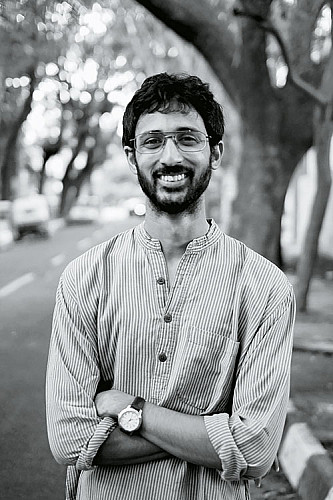Raam Reddy On His Unconventional Directorial Debut
At 26, the Prague Film School graduate has already written a lyrical novel called It’s Raining In Maya, and directed the much-acclaimed Telugu short, Ika, apart from his debut Kannada feature film, Thithi. In addition to winning two awards, including the Golden Leopard at the Locarno International Film Festival, it has also won a National Film Award for Best Feature Film in Kannada and several state film awards. A comedy about three generations of a family dealing with the death of their patriarch, it has touched audiences worldwide.
“It was a 160-page screenplay with 100 characters and 126 scenes. It’s not a typical debut screenplay. The first two weeks of shooting Thithi were the most challenging. People had come from so many different places and it was a sudden shock in terms of pressure. Making so many people believe in the vision of a young film-maker was a huge challenge.”
“I probably won’t venture into commercial cinema as people understand it right now. But Thithi has kind of become commercially successful. So I think I would tend to keep my narratives interesting, engaging, and accessible. I would like to make each film as authentic as possible. I think that they may have the potential to be commercial, but I will never compromise on their artistry.”
“Locarno was just magical, I think because there’s no major market at the fest. It’s bad because you have to find other ways to get your film into the global market, but there’s a certain purity that comes with it — a celebration of cinema for what it is. There’s almost no politics. Of course, I didn’t think we’d ever win at Locarno! If you see those pictures of me, I’m really shocked. That moment changed my life — in terms of our festival run and global spotlight on the film.”
“The National Film Award was very timely — just before our release! A film like ours doesn’t have a massive marketing budget. So it really helped create an organic buzz and bring attention to the film. Then the Karnataka State Film Awards happened just two weeks after our release, again just divinely planned.”
“We wanted to retain both the real and cinematic elements with an equal amount of integrity. So having people from our own culture accept it as a true portrayal of life meant a lot. Often for movies like this one, they do really well internationally but not so well in their home country, or vice versa. Breaking those boundaries with Thithi is something we were hoping to do by just telling a good story and it seems to have worked out.”
“We are a more emotional people and that’s what I love about us Indians. The European audience was more reactive to visual humour — for example, in the first scene, when Century Gowda dies and all the animals notice before the humans. But no one I’ve seen has laughed at that in India. They’re more shocked at the death, probably. We end up laughing more at some of the dialogues and the nuances in the delivery. But I think the essence of the film has been similarly received everywhere.”
“For me, one of the primary motivations was the narrative itself — which was a comparative character study of three generations of the same family. It’s quite clear that the person who’s least materialistic, Gaddapa, is by far the most at peace with everything. So for me, he was always the soul of the story and everything around him was worked to make him stand out.”
“There’s a democratisation of taste which is really exciting. About 10 years ago, you would end up watching what your family and friends watch. You now have access to so much more content. There’s also a far bigger presence of different kinds of cinema from all over the world on the internet. People are getting more used to subtitles. They’re willing to spend on a theatrical experience where they don’t understand the language. It means that no matter what language you make a film in, make it as well as you can because, hopefully, the quality alone will take you beyond your region.”
Related posts from Verve:
Verve Trending
Sorry. No data so far.
us on Facebook to stay updated with the latest trends






